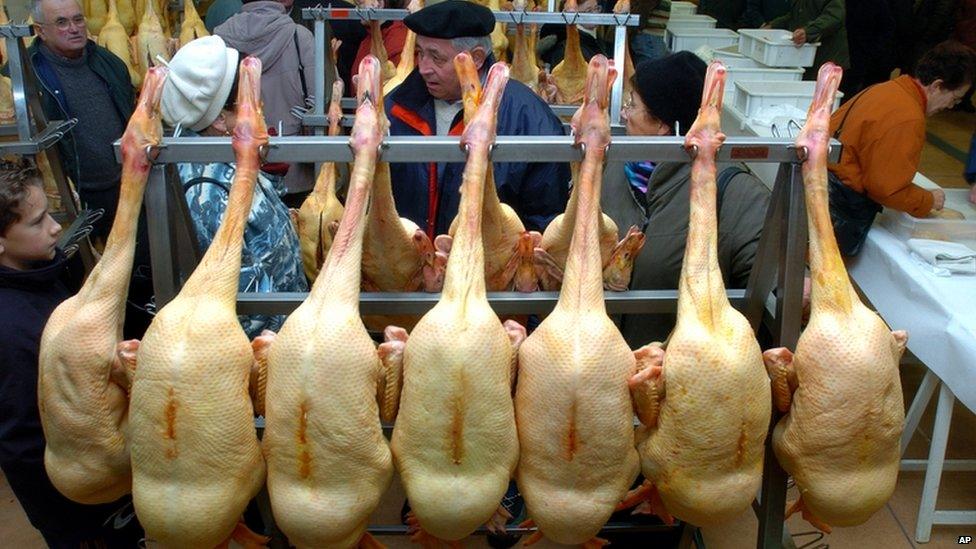Brazil: Foie gras banned in Sao Paulo restaurants
- Published

Most of the foie gras produced in the world comes from France
Legislators in Brazil's largest city, Sao Paulo, have banned the production and sale of foie gras, a delicacy made from the fatty liver of force-fed ducks and geese.
City councillors said animals go through a great deal of suffering for the production of the pate.
Animal rights campaigners have hailed the move, but some of Sao Paulo's best-known chefs have voiced concern.
Foie gras, originally a French delicacy, is produced worldwide.
Several countries, including Britain, Germany, Italy and Argentina, have banned its production. But the sale of the pate is still allowed in most of them.
The Sao Paulo city council has set a fine of 5,000 reais (£1,000) for restaurants and bars that break the new law - which will take effect in 45 days.
"Foie gras is an appetiser for the wealthy," said the law's author, city councillor Laercio Benko.
"It does not benefit human health and to make it, the birds are submitted to a lot of suffering,'' said Mr Benko.
However Sao Paulo-based chef Alex Atala told the UOL news portal: "How can a city regulate what a person eats? Where will it all end?''